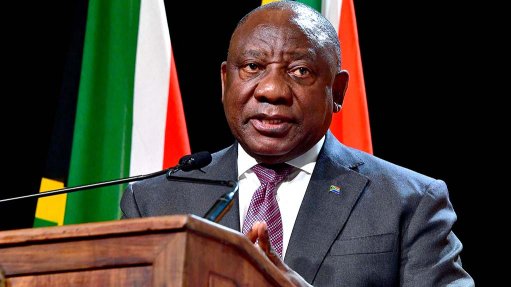PRESIDENT Cyril Ramaphosa said on Thursday he deeply regrets the current energy crisis which has plunged the entire country into Stage 6 load-shedding.
Ramaphosa said he acknowledges the frustration of households, parents and learners who have commenced the school calendar year facing massive power shortages.
“The devastation to small businesses and the adverse impact to the economy remains severe for South Africa’s recovering economy,” Ramaphosa said.
On Wednesday, Eskom announced that it will rollout Stage 6 load=shedding.
Ramaphosa said he has convened a National Energy Crisis Committee comprising of Ministers and various technical workstream leads with a view of finding sustainable solutions.
“Whilst the President acknowledged some of the progress made in the executing elements of the National Energy Plan, he further demanded more urgency and speed in the implementation of all priority areas and actions laid out in the National Energy Plan,” Presidency spokesperson Vincent Magwenya said in s statement.
Ramaphosa urged communities to be patient as he remained seized with finding a sustainable solution to the current energy crisis.
Magwenya said Ramaphosa is assessing the energy challenges regularly to review the situation and offer direction on urgent measures that must be undertaken in order to mitigate against the impact of load=shedding.
The Crisis Committee workstreams, Magwenya said, continue to make progress on several areas aimed at ensuring the stability of the grid and finding additional megawatts.
Some of the progress that Ramaphosa said the team made included the removal of the licensing threshold through amendment to Schedule 2 of the Electricity Regulatory Act.
Furthermore, a dedicated team in the Department of Public Works and Infrastructure (DPWI) has been established to work closely with Eskom Transmission to expedite expropriation and servitudes.
The Minister of Public Works and Infrastructure, Patricia de Lille, has in the last two months signed notices of intent to expropriate for 27 parcels of private land.
Presidency said Eskom has identified up to 1000 MW of additional power to be imported from Mozambique and other countries in the SADC region, pending negotiations and regulatory approvals.
This is in addition to the 300 MW already secured through the Southern African Power Pool.
An independent team has been assembled to diagnose challenges at power station level (including former Power Station Managers), starting with Duvha, Kusile, Kriel, Tutuka, Hendrina and Matla.
“This team is working with the management and board of Eskom,” he added.
Magwenya said NATJOINTS is coordinating the work of multiple agencies to address sabotage, theft and fraud at Eskom.
“Some arrests have been made, with progress driven by increased deployment of private security by Eskom,” Magwenya said.
Meanwhile, the National Energy Regulator of South Africa (Nersa) has granted Eskom an 18% electricity hike on Thursday.
Effective from April 1, both households and businesses will have to pay more for what they can barely use.
“A further 12.74% increase on 1 Apr 2024. This is a total electricity price increase of 33.7% over the next 2 years,” the energy regulator said.
INSIDE POLITICS



